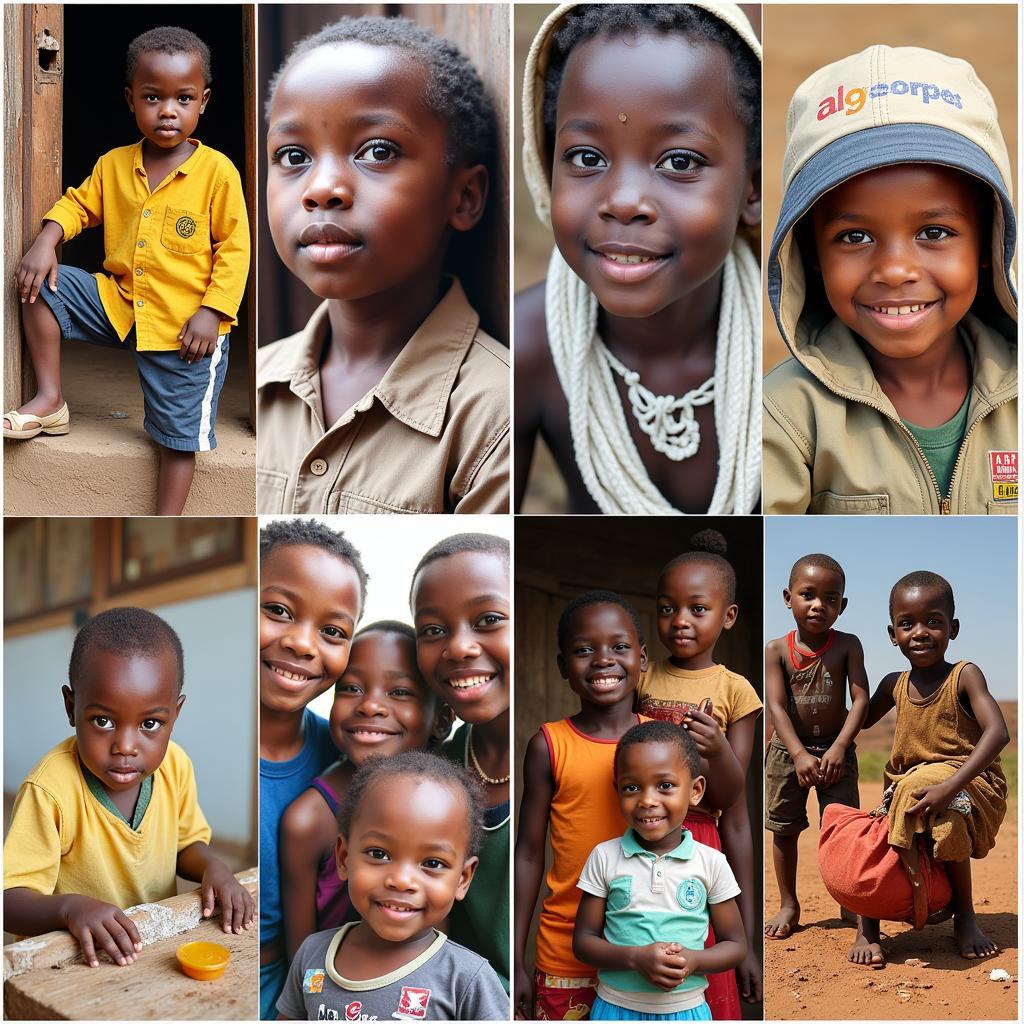The Enduring Influence of the “African Kid Commercial” Trope
The phrase “African Kid Commercial” likely evokes a specific image in your mind: a young child, often dusty and thin, gazing at the camera with wide, sorrowful eyes. This image, popularized by charity advertisements in the late 20th century, has become a contentious trope, raising questions about representation, poverty porn, and the effectiveness of such campaigns.
While the simplistic narrative of helpless African children in need of Western salvation is outdated and harmful, the impact of these commercials, both positive and negative, cannot be ignored. This article delves into the history of the “African kid commercial”, exploring its evolution, examining its cultural implications, and discussing the need for more nuanced and empowering narratives about Africa.
A History of Pity: The Rise of the “Save the Children” Narrative
The “African kid commercial” trope emerged in the late 20th century alongside the rise of global humanitarian aid. Organizations like UNICEF and Save the Children began using television as a powerful tool to raise awareness and funds for children in need around the world.
 African Child in Charity Ad
African Child in Charity Ad
These early campaigns, while well-intentioned, often relied on simplistic narratives that emphasized the poverty and helplessness of African people. Images of starving children, dilapidated villages, and pervasive suffering became commonplace, creating a sense of urgency and tugging at the heartstrings of Western viewers. These images, while often accurate depictions of a harsh reality, failed to capture the complexity and diversity of the African continent, presenting a one-dimensional and ultimately dehumanizing view of its people.
The Problem with Poverty Porn: Perpetuating Harmful Stereotypes
The reliance on images of suffering and deprivation, often referred to as “poverty porn,” had unintended consequences. While generating donations, these campaigns also reinforced harmful stereotypes about Africa as a continent defined solely by poverty, disease, and conflict.
The “African kid commercial” trope stripped individuals of their agency and complexity, presenting them as passive recipients of Western charity. This narrative ignored the resilience, ingenuity, and cultural richness of African communities, further fueling a savior complex that positioned Western nations as benevolent rescuers.
Moving Beyond the Trope: Towards Authentic and Empowering Representation
The criticism leveled against the “African kid commercial” trope is not meant to diminish the very real challenges faced by many communities across Africa. Rather, it calls for a more nuanced and ethical approach to representation, one that acknowledges both the struggles and the triumphs of the continent.
Several organizations and individuals are working to challenge these harmful stereotypes, promoting a more balanced and empowering narrative about Africa. These efforts focus on showcasing the diversity of African experiences, highlighting the agency and resilience of its people, and promoting solutions that originate from within the continent itself.
How Can We Do Better?
- Centering African Voices: Prioritizing stories told by African filmmakers, photographers, and storytellers ensures authentic representation and allows for a multiplicity of perspectives.
- Shifting the Focus: Moving beyond narratives solely focused on poverty and suffering to showcase the richness of African cultures, the vibrancy of its people, and the ingenuity of its solutions.
- Emphasizing Agency and Solutions: Highlighting the work of local organizations and individuals working to create positive change within their communities.
The Future of Representation: Embracing Complexity and Authenticity
The “African kid commercial,” while problematic, serves as a reminder of the power and responsibility inherent in storytelling. As we move forward, it’s crucial to recognize the limitations of simplistic narratives and embrace the complexity and richness of the African continent. By amplifying authentic voices, supporting ethical storytelling, and advocating for nuanced representation, we can contribute to a more just and equitable world.
Remember, a single image, a single story, can never encapsulate the vastness of human experience. It’s time to move beyond the limitations of the “African kid commercial” and embrace the full spectrum of African narratives.


